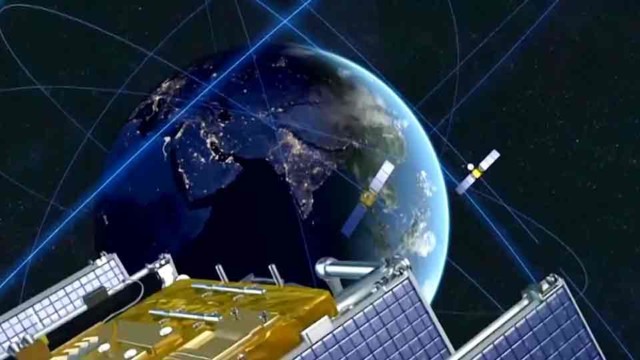China is rapidly becoming an engine of innovation. The latest example can be found in space. By combining military technology with private enterprise the country now has its own global navigation system.
CGTN’s Han Bin has more in this installment of our special series The Big Picture.
Beidou knows where you are. Almost all Chinese fishing boats have installed China’s own satellite navigation system. Beidou, which means the Big Dipper, intends to provide the world’s best service, and that means covering the entire planet.
Zhou Ruxin is behind the civilian application of this technology. He’s the founder of BDStar, a leading private company in navigation and positioning, which offers real-time observation of over 40,000 boats in the East and South China Seas. He said civil-military integration is helping drive innovation.
“Many of the advanced technologies are coming from civilian enterprises,” said Zhou. “The main market of private companies is coming from civilian services. In the process of civil product development, they can greatly reduce the cost of technology. The civil-military integration has great significance for improving the quality of weaponry and reducing military expenditure.”
Zhou said Beidou can provide position accuracy of under ten meters. Their latest product–the world’s smallest chip, less than 3 millimeters in length–meets top world standards. It’s just one of the many types of chips they developed for civilian and military purposes.
Lift-off for Beidou was in 2000, with its first satellite. It offers an alternative to the US Global Positioning System, GPS. Beidou said it will achieve global coverage by 2020.
China has made “civil-military integration” a national strategy. This is to provide the military with better technologies and services, while at the same time helping advance the economy. It’s giving companies like BeidouStar a more competitive edge in the future.
President Xi Jinping wants a smaller, smarter military. The order has gone out to cut costs and integrate existing civilian technologies and services into the People’s Liberation Army.
BDStar was at the forefront of Xi Jinping’s strategy. Though Beidou is some 20 years younger than GPS, its advances in technology are helping it catch up.
Its success led the way in penetrating the barriers between military technologies and services formerly off-limits to the private sector. Beidou started with the military, and went on to develop applications in other areas.
“Previously, civilian companies weren’t taken seriously when entering the monopolized military markets,” explained Zhou. “We survived in the cracks, and seized the opportunity to become a world-class company. As civil-military integration gradually advances, this strategy could bring new vitality to the civilian enterprises.”
Zhou’s company grew from scratch, to start to take over the overseas market. The push came from China’s military transformation. He’s confident about further civil-military integration because Beidou has shown him the bigger picture.
 CGTN America
CGTN America
